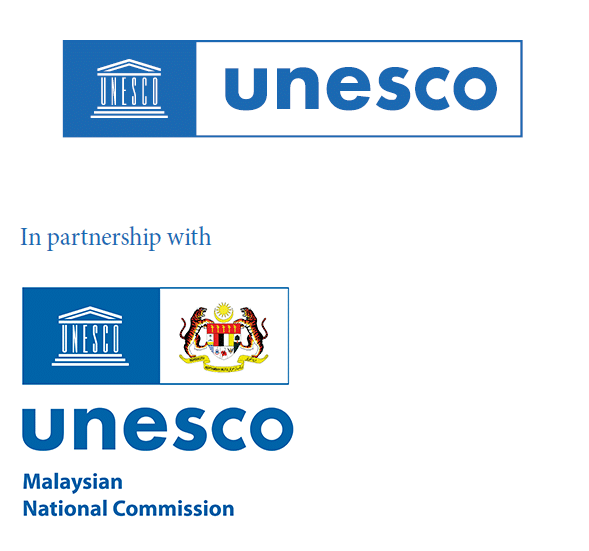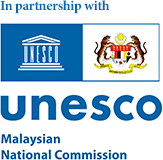Background
In order to realize Agenda 2030, UNESCO and PMAS-Arid Agriculture University Rawalpindi, Pakistan with the support of Japan Funds-in-Trust and Malaysia Funds-in-Trust, are taking the lead in highlighting key issues, available solutions and policy directions for poverty alleviation and improved livelihood in dryland regions in Asia and the Pacific region.
The agricultural productivity has seen a rapid growth since the late 1950s due to introduction of new crop varieties and fertilizer use. However, the boost in agricultural production has remained limited to irrigated plains, while the dryland regions are still facing food insecurity and poverty. The situation is further worsened due to non adaptability of modern technologies and lack of mechanization resulting in decreased water productivity. There is dire need to improve water use efficiency and energy inputs on sustainable basis for substantial increase in food production.
Objectives
Keeping in view the scarcity of water, energy and food, the upcoming conference will provide an opportunity to hold an international dialogue between policy makers, scientists, academicians, other experts and stakeholders for exploring new dimensions to increase water and food security and alleviate poverty in the resource deficient dryland regions worldwide, in Asia and the Pacific region, and particularly in Pakistan.
Participants in this dialogue will discuss the thematic areas and propose policy guidelines and strategies for effective use of resources to ensure water, energy and food security. This conference will help facilitate the integration of the newly adopted Sustainable Development Goals (SDGs) into national development plans of respective member states / countries, particularly on SDGs 1, 2, 3, 6, 7, 9, 11, 13, 15 and 17
Conferences Themes
The conference is organised around four major themes:
- Water Security for Sustainable Development
- Substantially increase in water use efficiency across all sectors and sustainable withdrawal/supply of fresh water to address water scarcity
- Protect and restore water-related ecosystems, including mountains, forests, wetlands, rivers, aquifers and lakes
- Identify new ways of supporting and strengthening the participation of local communities in improving water and sanitation management
- Renewable Energy Systems
- Increase substantially the share of renewable energy in the global energy mix
- Expansion of infrastructure and up-gradation of technology for supplying modern and sustainable energy services for all in developing countries
- Food Security
- Enhancing agricultural productivity and income of small-scale food producers, in particular, women, family farmers, pastoralists and fishers, through secure and equal access to productive resources and inputs, knowledge, financial services, markets and opportunities for value addition and non-farm employment
- Ensure sustainable food production systems and implement resilient agricultural practices that increase productivity and production, that help maintain ecosystems, that strengthen capacity for adaptation to climate change, extreme weather, drought, flooding and other disasters and that progressively improve land and soil quality
- Poverty Alleviation
- Building resilience of the poor and those in vulnerable situations and reduce their exposure and vulnerability to climate-related extreme events and other economic, social and environmental shocks and disasters
- Capacity building and training of farming community activist through managerial, financial and entrepreneurial capacity build-up for establishing local level enterprises based upon local agricultural produce and value addition process
- Creation of sound policy frameworks at the national, regional and international levels, based on pro-poor and gender-sensitive development strategies, to support accelerated investment in poverty eradication actions
- Maintaining genetic diversity of seeds, cultivated plants and farmed and domesticated animals and their related wild species, including through soundly managed and diversified seed and plant banks at the national, regional and international levels, and promote access to and fair and equitable sharing of benefits arising from the utilization of genetic resources and associated traditional knowledge, as internationally agreed.
- Developing need-based farm mechanization and Post-harvest technologies of agricultural crops, enhancing milk and meat production, value addition, and developing sustainable production and marketing systems
Conferences Venue
Pir Mehr Ali Shah Arid Agriculture University, Shamsabad, Murree Road, Rawalpindi, Pakistan (http://www.uaar.edu.pk)
Day 1: 23 November 2016Day 2 : 24 November 2016Day 3 : 25 November 2016
Day/ Session Programme Agenda Resource Person
Morning Session 1 INTERNATIONAL TECHNICAL SESSION-I:
National and Global Dialog: Pakistan Vision 2030 and UN Agenda 2030 Chaired by:
Prof. Dr. Shahbaz Khan (UNESCO)
Keynote : AP-FAST Facility for Accelerating Science & Technology Knowledge Services for SDGs into National Development Plans in Asia and the Pacific Prof. Dr. Shahbaz Khan (UNESCO)
[ Download Keynote_AsiaPacific Fast-shahbazkhan ]
Keynote : Pakistan Vision 2025 Mr. Nasir Gilani (Planning Commission, Pakistan)
[ Download Material ]
Keynote Prof. Dr. Manzoor Soomro (ECO Science Foundation, Pakistan)
Panel Discussion 1 : A Water Focus (tbc) – Prof. Dr. Rai Niaz Ahmad (VC, Pakistan),
– Prof. Soontak Lee (Yeungnam University, RO Korea)
– Dr. Olivia O’Castillo (SDSAP, Philippines),
– Prof. Hidayat Pawitan (Bogor Agricultural University, Indonesia),
– Dr. Mamoru Miyamoto (ICHARM, Japan)
Panel Discussion 2: An Food and Energy Focus (tbc) – Mr. Nasir Gilani (Pakistan),
– Prof. Kamarulazizi Ibrahim (USM, Malaysia),
– Prof. Manzoor Soomro (ECO Science Foundation, Pakistan),
– Mr. Yasuhiro Tojo (JICA, Pakistan)
Session Conclusion Prof. Dr. Shahbaz Khan (UNESCO)
Morning Session 2 INAUGURAL SESSION (Venue : University Auditorium)
Arrival of the Chief Guest, Pakistan National Anthem, Recitation from the Holy Quran, Hidya-e-Naat
Welcome Address Prof. Dr. Rai Niaz Ahmad
Welcome Remarks Ms. Vibeke Jensen, (UNESCO, Islamabad)
Key Remarks H.E. The Ambassador of Japan
Key Remarks H.E. The High Commissioner of Malaysia
Technical Remarks Prof. Dr. Shahbaz Khan (UNESCO)
Address by Guest of Honour, Address by the Chief of Guest
Afternoon Session International Technical Session-II :
Disaster Management Session
Keynote 1: Heart of Asia Initiative Mr. Ahmad Kamal (NDMA, Pakistan)
[ Download Material ]
Keynote 2: PMD Dr. Ghulam Rasul (PMD, Pakistan)
[ Download Material ]
Keynote 3: FFC Mr. Alamgir Khan (FFC, Pakistan)
Keynote 4: DRR in Afghanistan Mr. Muhammad Sediq Hassani (ANDMA, Afghanistan)
Keynote 5: Flood disasters and their long term socioeconomic Prof. Dr. Saffar Mirjat (Dean, FEA, Tandojam, Pakistan)
[ Download Material ]
Panellists Presentation (5 min each) – Mr. Hiromu Inoue (JICA, Pakistan),
– Dr. Mamoru Miyamoto (ICHARM, Japan) [ Download Material ] – Dr. Amir Nawaz Khan (Uni. Peshawar, Pakistan)
Panel Discussion Keynote speakers and Panellists
Synthesis Panel Discussion Chair
Cultural Show & Welcome Dinner




